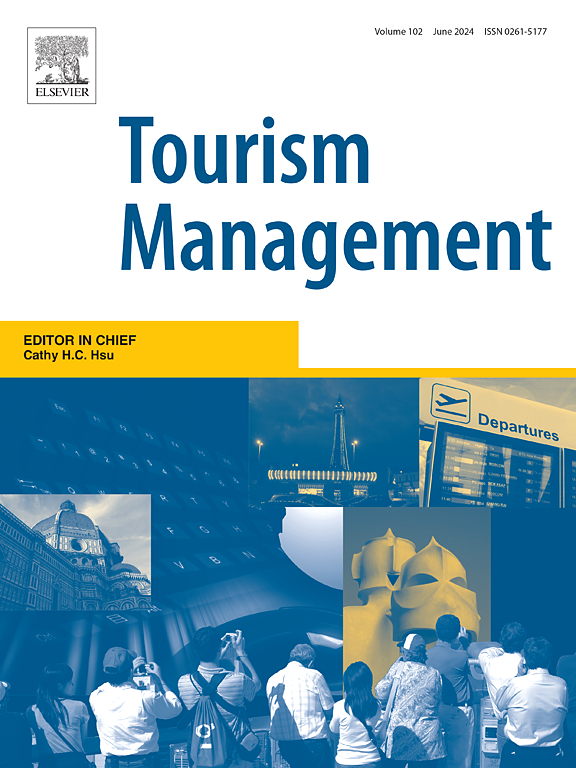Customer gratitude and employee work behaviors
IF 12.4
1区 管理学
Q1 ENVIRONMENTAL STUDIES
引用次数: 0
Abstract
In the ever-evolving tourism and hospitality industry, understanding the dynamics between customers and front-line employees is crucial for organizational performance. Drawing on self-awareness theory, this research offers a nuanced perspective on how positive customer interactions can distinctively shape employees' actions, both towards their organization and themselves. Utilizing a dual-method approach, this research comprises an online experiment involving 235 participants and a three-wave field survey of 337 employees. The results show that customer gratitude significantly bolsters employees’ pro-organizational behavior by elevating their public self-awareness. This effect is further amplified when employees possess extrinsic career goals. Additionally, customer gratitude fosters self-improvement behavior among employees by enhancing their private self-awareness. This effect is particularly pronounced when intrinsic career goals drive employees. These findings provide substantial implications for both academic research and practical management within the industry, highlighting the pivotal role of customer gratitude in shaping employee behavior and organizational outcomes.
顾客感恩与员工工作行为
在不断发展的旅游和酒店业,了解客户和一线员工之间的动态对组织绩效至关重要。利用自我意识理论,这项研究提供了一个微妙的视角,说明积极的客户互动如何独特地塑造员工的行为,无论是对他们的组织还是对他们自己。本研究采用双方法,包括235名参与者的在线实验和337名员工的三波实地调查。结果表明,顾客感激通过提升员工的公共自我意识显著地促进了员工的亲组织行为。当员工拥有外在职业目标时,这种效应会进一步放大。此外,顾客的感激之情通过提高员工的个人自我意识来促进员工的自我完善行为。当员工受到内在职业目标的驱使时,这种效应尤其明显。这些发现为学术研究和行业内的实际管理提供了重要的启示,强调了客户感激在塑造员工行为和组织成果方面的关键作用。
本文章由计算机程序翻译,如有差异,请以英文原文为准。
求助全文
约1分钟内获得全文
求助全文
来源期刊

Tourism Management
Multiple-
CiteScore
24.10
自引率
7.90%
发文量
190
审稿时长
45 days
期刊介绍:
Tourism Management, the preeminent scholarly journal, concentrates on the comprehensive management aspects, encompassing planning and policy, within the realm of travel and tourism. Adopting an interdisciplinary perspective, the journal delves into international, national, and regional tourism, addressing various management challenges. Its content mirrors this integrative approach, featuring primary research articles, progress in tourism research, case studies, research notes, discussions on current issues, and book reviews. Emphasizing scholarly rigor, all published papers are expected to contribute to theoretical and/or methodological advancements while offering specific insights relevant to tourism management and policy.
 求助内容:
求助内容: 应助结果提醒方式:
应助结果提醒方式:


